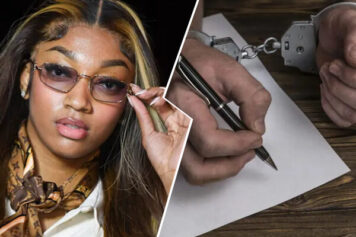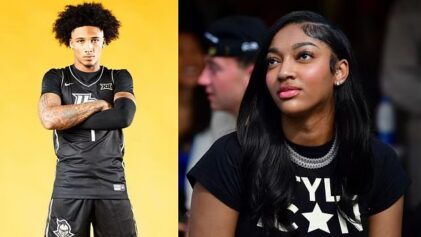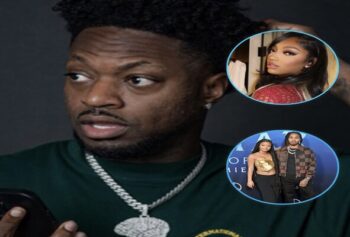Kim Mulkey, Angel Reese and the LSU women’s basketball program have been the subject of various media attacks on their team culture, the various charismatic personalities and the fiery, colorful demeanor of their coach.
Because of the strong celebrity status of Reese and Roc Nation rapper/baller Flau’Jae Johnson, who are also social media stars who consort with music industry bigwigs and represent a brand that’s authentic and loud, they tend to rub those who don’t understand the spirit of competition the wrong way.
As we saw in last year’s NCAA championship game between LSU and Iowa, both Reese and Clark made gestures and talked junk throughout the game, but mainstream media carried a narrative that Reese was somehow the villain in the situation. Her outspokenness and flamboyance didn’t help.
But all of these personalities and different cultural perspectives add up to one All-American team. However, the descriptions of this team and the narratives surrounding them often appear to be indirect ways of attacking the players’ race or culture.
Hailey Van Lith Calls Racism On LA Times Description Of LSU Women’s Team
LSU guard Hailey Van Lith, a blond, blue-eyed baller on LSU defended her team Sunday following a Los Angeles Times column that labeled them as “dirty debutantes.”
The diminutive guard who rocks two ponytails when she navigates among the giants, went from 0 to 100 with no delay, calling the article “sad” and those who presented a negative narrative about her predominantly Black squad as “being racist toward my teammates.”
LSU Coach Kim Mulkey warned the press of a “hit piece” that was going to drop in The Washington Post about her program, and she attacked what she felt were unprofessional and nefarious ways that the reporter went about securing information for his story.
The piece never dropped, but the LA Times column, less of an investigative piece, delivered its own negative hits towards LSU.
Van Lith said the team saw the editorial before its Sweet 16 matchup against UCLA on Saturday and it was the type of commentary “that can crush your soul a little bit that someone would ever say that about us that doesn’t know us,” Van Lithe said.
“We do have a lot of Black women on this team, and a lot of people who are from different areas and unfortunately, that bias does exist still today, and a lot of the people that are making those comments are being racist towards my teammates,” Van Lith said.
She didn’t hesitate to stand for her teammates or criticize and acknowledge the privilege and grace that she is rewarded by white people because of her color.
“I’m in a unique situation where I see with myself, you know…I’ll talk trash and I’ll get a different reaction than if Angel [Reese] talks trash. I have a duty to my teammates to have their back. Some of the words that were used in that article were very sad and upsetting.
“Calling us the dirty debutantes, that has nothing to do with sports. That’s not motivating. But in my opinion, I know for a fact that people see us differently because we do have a lot of Black women on our team who have an attitude and like to talk trash and people feel a way about it. At the end of the day, I’m rocking with them because they don’t let that change who they are. They stay true to themselves, and so I’ll have their back.”
Kim Mulkey Strikes Back against “Sexist” LA Times Piece
Kim Mulkey has stood by her players all season and she is the leader of an LSU program that refuses to back down or cower in the face of misrepresentations and negative personal attacks.
During her postgame news conference following LSU’s 78-69 victory over UCLA, Tigers coach Mulkey was less than enamored with the way the column was framed, describing the game as a “reckoning” between good vs evil.
Mulkey called out the L.A. Times article.
“You can criticize coaches all you want..It comes with the territory. But the one thing I’m not going to let you do, is attack young people,” Mulkey insisted. “There were some things in this commentary that you should be offended by as women. It was so sexist that they didn’t even know it.
“Take your phone out right now and Google ‘dirty debutantes’ and tell me what it says.
“How dare people attack kids like that? You don’t have to like the way we play or trash talk. We are good with that. But I can’t sit up here as a mother and grandmother as a leader of young people and allow them to say that,” Mulkey added.
Van Lith Has Seen The Racial Double Standard Since High School
Van Lith, who grew up in Wenatchee, Washington, spent the first three years of her career at Louisville before transferring to LSU this past season.
She says the double standard isn’t something new. She’s always played with Black players, going back to her prep days.
“I’ve experienced it at Louisville. I’ve experienced it my whole life,” Van Lith said. “A lot of the time, I’m one of the only white people on the team and so I do see things from a different perspective. I think a lot of people who live in communities think that everyone is like them, that’s when they tend to think, ‘Oh, racism doesn’t exist today.’ But I have seen it and I experienced it, and I watch it happen to my teammates. I watch it happen to my friends.
“So, when I go back home, which is a mostly white community, I do share those experiences,” she continued. “When I was in high school, they tried to cancel the Martin Luther King Jr. assembly because we didn’t have enough time for it, but every other holiday we had enough time for. We were a majority white high school, so no one had a problem with it. It’s my responsibility to say things when that happens because I’m in a unique position.”
Angel Reese Couldn’t Care Less About Bad Press
Reese wasn’t sweating the article. Her outer and inner shell is built to deflect haters and she wasn’t surprised by the Times article’s description about her.
“It motivates us. It makes us more hungry, it makes us want to go out there and win even more…I don’t really care.”
In the aftermath of the drama, the Los Angeles Times tried to clean up its mess by removing some of the language in the column, including its reference to “dirty debutantes,” later Saturday, saying in a statement that “it did not meet Times editorial standards.”
Mulkey wrapped up her commentary by challenging the reporters to go to Baton Rouge, Louisiana, and see their huge crowds and then ask if LSU is good for the game.
For the answer to that question, just look at all the attention women’s basketball is getting. Like Candace Parker said on a recent podcast, allowing women’s basketball to be criticized is needed for the game to advance.
Sensationalized reporting is also unfortunately a part of that next step and LSU has a united front ready to grapple with whatever comes their way.
A rematch with America’s darling, Caitlin Clark of Iowa, for a trip to the Final Four is next for a team who is becoming everybody’s favorite to root against but is using the hate as fuel towards a back-to-back national championship run.



